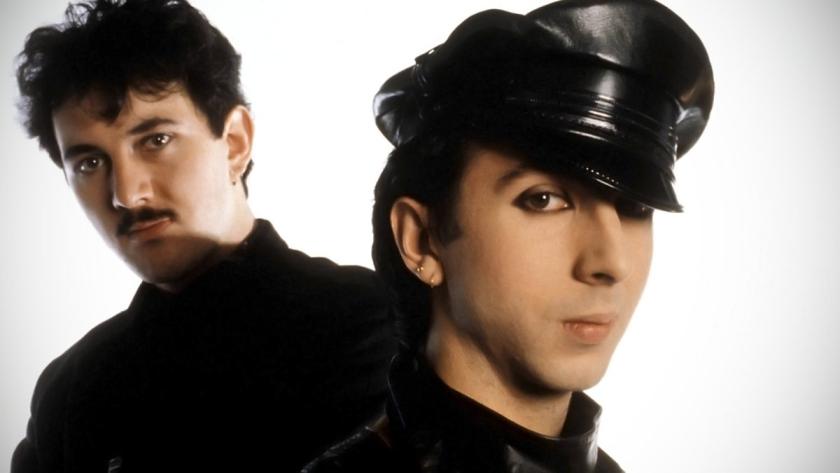“It’s never been about the success to me,” says Marc Almond, “It’s always been about the adventure.” It’s a great attitude that’s writ large over the band’s uncompromising flame-out of an early Eighties pop career. Soft Cell: Say Hello, Wave Goodbye was a welcome celebration of this electronic duo, often under-appreciated as 24 carat songwriters, although it sometimes failed to encapsulate the band’s obtuse hedonic outsider dynamic.
The pivot on which the hour-long documentary turned was Soft Cell’s one-off, sold-out reunion concert at the O2 last autumn. There was enjoyable footage of Almond and keyboard-playing partner Dave Ball revelling in this sudden, glorious, unexpected return to the limelight, notably on the energetically doomed number “Heat”. Another treat for fans was rehearsal footage shot in a suitably bleak-looking concrete bunker, including a version of their early song “A Man Could Get Lost”.
From there we hopped to their individual beginnings in Southport and Blackpool, respectively, with insights into Almond’s troubled persona perhaps given in the way he haltingly stated, “It’s enough to say I was happy when my father wasn’t around.”
Soft Cell’s career was an accident. They wanted to be an underground art band like, say, Cabaret Voltaire, but before they’d even found their sea legs, “Tainted Love” catapulted them to stratospheric success as we saw via colourful clips of their once transgressive goth sex-’n’sleaze persona on pop programmes of long ago.
Talking heads included Andy Bell of Erasure and the singer David McAlmont, who nailed it when he said that Soft Cell were “looking into the heart of urban darkness and finding romance”. Journalist Beverley Glick – AKA Sounds writer Betty Page – was also good value, cannily pinpointing the correlation between the unwanted pressure to be pop stars and Soft Cell’s immersion in drug use.
Almond and Ball themselves spent much time laughing in retrospective disbelief at their antics, giving off an odd-couple awkwardness filled with mutual affection, Ball the earthy Northern everyman beside Almond’s nervy, mercurial diva. They cackled as they recalled telling a Smash Hits-type pop mag that their favourite colour was “helmet purple”, at how they refused to play “Tainted Love” on their US tour, and at how their single “Bedsitter” partly flopped in the States because it was not a familiar term there. They should, suggested Almond, have called it “Microloft-sitter”.
These anecdotes were the best bits of the programme, snippets that gave insight into the duo’s strange but effective dynamic, into the way they self-sabotaged their career over three increasingly dark and brilliant albums. However, the film’s telling of their story was prosaic and might have been more effective if it had utilised some of the arty, experimental tricksiness of the band it was covering.
The biggest failing, though, was devoting almost a quarter of what was only a 60-minute film to what Almond and Ball have been up to since Soft Cell split. Such matters could easily have been nailed in a two-minute voice-over montage, leaving more time to explore, particularly, their seminal relationship with New York's nightworld. Nonetheless, Soft Cell: Say Hello, Wave Goodbye was a decent tribute to one of synth-pop’s greatest, a reminder of their admirably headstrong intransigence and fantastic music.
Below: watch Soft Cell perform "Say Hello, Wave Goodbye" on Later... with Jools Holland















Add comment